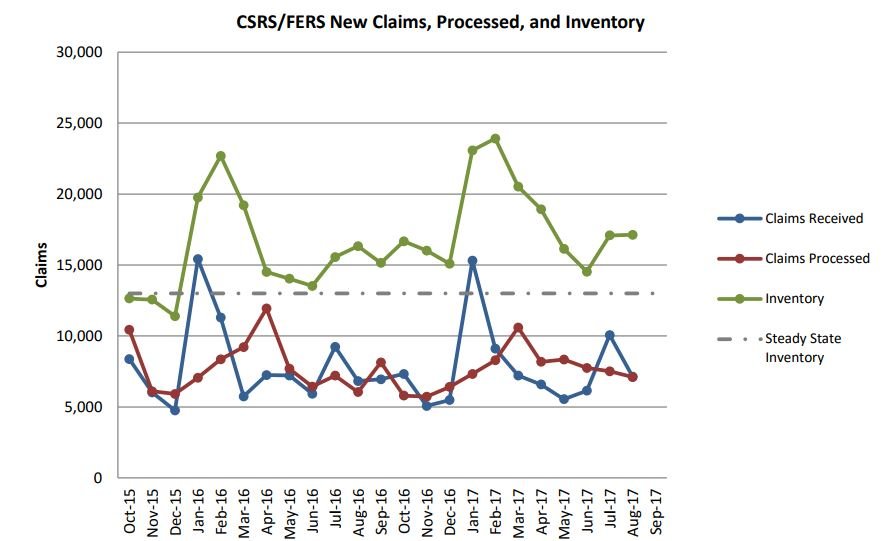
OPM retirement backlog stabilizes in August
The Office of Personnel Management hasn't seen much progress in reducing its backlog of unprocessed federal employee retirement claims after experiencing an uptick...
The Office of Personnel Management hasn’t seen much progress in reducing its backlog of unprocessed federal employee retirement claims after experiencing an uptick in claims earlier this summer.
OPM’s inventory of unprocessed retirement claims fell to 17,125 in August, a 5-percent decrease in the agency’s backlog from July, when it received a sudden uptick in new claims.
The federal HR office received 7,136 new retirement claims in August, more than 29 percent fewer claims than it had gotten in July. OPM’s backlog remains 4,000 claims higher than its own “steady state” benchmark.
OPM had been making progress on chipping away at its backlog since February, when its inventory of unprocessed claimed spiked at 23,000, the highest the backlog had been since at least October 2015. In June, the agency had brought the backlog down to 14,530 claims, the lowest point of the calendar year.
So far in fiscal 2017, OPM has processed 57 percent of claims within its 60-day standard timeframe, and in the month of August, the agency processed 70 percent of claims within the 60-day window.
In its monthly metrics snapshot, OPM determined that it took 105 days, on average, to process claims that took longer than its 60-day benchmark, seven days longer than the average calculated in July. Claims processed within the 60-day window took an average of 47 days to complete.
These month-to-month processing rates have been consistently lower in 2017 than in the year before. An OPM spokesman told Federal News Radio in a statement that the Trump administration’s hiring freeze impacted the percentage of claims processed within 60 days. GovExec first reported the freeze’s impact on claims processing in August.
So far, OPM has followed the pattern that plays out every year, where the agency sees retirement claims peak in January and February — since they are the most popular months for federal employees for retire — then spends the spring and summer months driving down the backlog, when fewer workers retire.

Copyright © 2025 Federal News Network. All rights reserved. This website is not intended for users located within the European Economic Area.
Jory Heckman is a reporter at Federal News Network covering U.S. Postal Service, IRS, big data and technology issues.
Follow @jheckmanWFED




